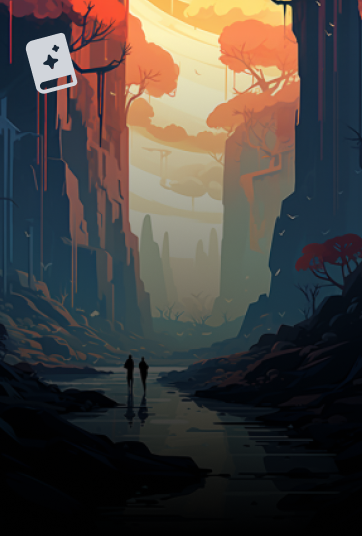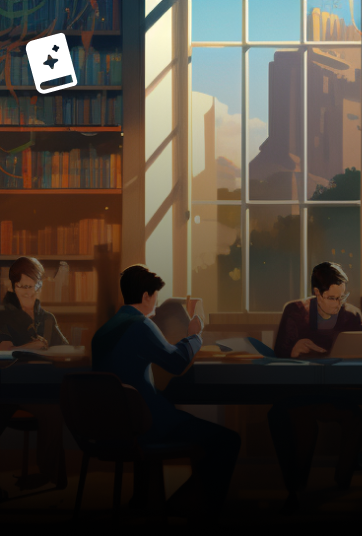
Books That Changed the World
Ratings2
Average rating3.5
We don't have a description for this book yet. You can help out the author by adding a description.
Reviews
Popular Reviews
Reviews with the most likes.
Originally published on Unravellations.
I'm not sure what made me pick up this book, so different as it is from my usual reading. However, it wasn't a bad choice at all. Books That Changed The World is basically a comprehensive list of books that have asserted a great influence on thought and literature, and Andrew Taylor also provides concise and relevant background information regarding the time period and culture that the book was written and published in. He does not center his list around books of literary importance, also including those of scientific, philosophical and political importance.
I like that he also disclaimed in his introduction that this list was, of course, subjective and that it was his own take of what were the most influential books in history. If this disclaimer had been missing, I would have things to say about the subjectivity and Eurocentric view of history the book posits. In any case, he also provides evidence of the influence that each book enjoys and how it has altered humans' way of thinking over time.
Confession: I did skip past certain books that I wasn't interested in, particularly the ones on economics but also some others. Nevertheless, I gleaned plenty of interesting facts and cleared up some of my own misconceptions about certain books (especially the Greco-Roman classics which I am very unfamiliar with) along the way. For example, I never knew that the Kama Sutra was actually an unillustrated volume of text, and much like the rest of the world, I had thought it only to be some kind of kinky sex manual. I was enlightened on this point. I did not know also that before William Harvey's groundbreaking work on hemology, men thought that an infinite supply of blood was made from the liver. I also learned that William Wordsworth and Samuel Taylor Coleridge paved the way for poetry as it is written today, an intimate way of looking at human experience, and that before Lyrical Ballads was published, poetry were usually story-like epics dealing with philosophy, religion or history, such as in Iliad or Paradise Lost.
The only complaint that I have, I guess, isn't really much of a complaint - I was spoiled for Madame Bovary before I even read it! :( If there are any books on the list that you have yet to read and want to remain un-spoilt, I would recommend that you skip its relevant chapter in this book. Taylor provides a short synopsis of each book's plot, which may reveal important plot points.
Contents:
1. Homer - Iliad (c. 8th century)
2. Herodotus - The Histories (c. 5th century BC)
3. Confucius - The Analects (5th century BC)
4. Plato - The Republic (4th century BC)
5. The Bible (2nd century BC - 2nd century AD)
6. Horace - Odes (23 - 13 BC)
7. Ptolemy - Geographia (c. AD 100 - 170)
8. Mallanaga Vatsyayana - Kama Sutra (2nd or 3rd century AD)
9. The Qu'ran (7th century)
10. Avicenna - Canon of Medicine (1025)
11. Geoffrey Chaucer - The Canterbury Tales (1380s-90s)
12. Niccolo Machiavelli - The Prince (1532)
13. Gerard Mercator - Atlas, or, Cosmographic Meditations (1585-95)
14. Miguel de Cervantes - Don Quixote (1605-15)
15. William Shakespeare - First Folio (1623)
16. William Harvey - An Anatomical Study of the Motion of the Heart and Blood in Animals (1628)
17. Galileo Galilei - Dialogue Concerning the Two Chief World Systems (1632)
18. Isaac Newton - Principia mathematica (1687)
19. Samuel Johnson - A Dictionary of the English Language (1755)
20. Johann Wolfgang von Goethe - The Sorrows of Young Werther (1774)
21. Adam Smith - The Wealth of Nations (1776)
22. Thomas Paine - Common Sense (1776)
23. William Wordsworth and Samuel Taylor Coleridge - Lyrical Ballads (1798)
24. Jane Austen - Pride and Prejudice (1813)
25. Charles Dickens - A Christmas Carol (1843)
26. Karl Marx - The Communist Manifesto (1848)
27. Herman Melville - Moby-Dick (1851)
28. Harriet Beecher Stowe - Uncle Tom's Cabin (1852)
30. Gustave Flaubert - Madame Bovary (1857)
31. Charles Darwin - On the Origin of Species (1859)
32. John Stuart Mill - On Liberty (1859)
33. Leo Tolstoy - War and Peace (1869)
34. New Haven District Telephone Company - The Telephone Directory (1878)
35. Sir Richard Burton (translator) - The Thousand and One Nights (1885)
36. Arthur Conan Doyle - A Study in Scarlet (1888)
37. Sigmund Freud - The Interpretation of Dreams (1899)
38. The Protocols of the Elders of Zion (1905)
39. Wilfred Owen - Poems (1920)
40. Albert Einstein - Relativity: The Special and the General Theory (1920)
41. James Joyce - Ulysses (1922)
42. D. H. Lawrence - Lady Chatterley's Lover (1928)
43. John Maynard Keynes - The General Theory of Employment, Interest and Money (1936)
44. Primo Levi - If This is a Man (1947)
45. George Orwell - Nineteen Eighty-four (1949)
46. Simone de Beauvoir - The Second Sex (1949)
47. J. D. Salinger - The Catcher In The Rye (1951)
48. Chinua Achebe - Things Fall Apart (1958)
49. Rachel Carson - Silent Spring (1962)
50. Mao Zhedong - Quotations from Chairman Mao (1964)
51. J. K. Rowling - Harry Potter and the Philosopher's Stone (1997)
One thing that I realised from reading this book, however, is that there is usually great resistance and controversy whenever a new revelation is made that contradicts everything that people at that time thought to be true, as in the case of medical experts denouncing William Harvey for his discovery of the way blood is circulated, or the Catholic Church's anger and rejection of Galileo's heliocentric theories on astronomy, or even the ban on D. H. Lawrence's Lady Chatterley's Lover, the overturning of which paving the way for the modern attitude to sexual openness.
It makes me question the things that we consider “controversial” and defying reason in our time and age. Would they one day also become known as works of genius or progressive thought, and the rest of us derided by posterity for our backward thinking?
























